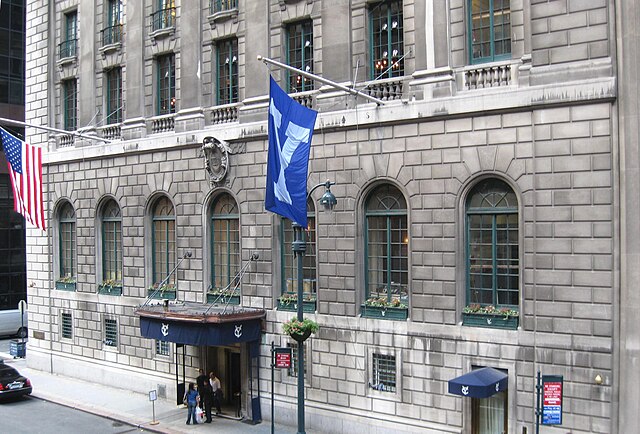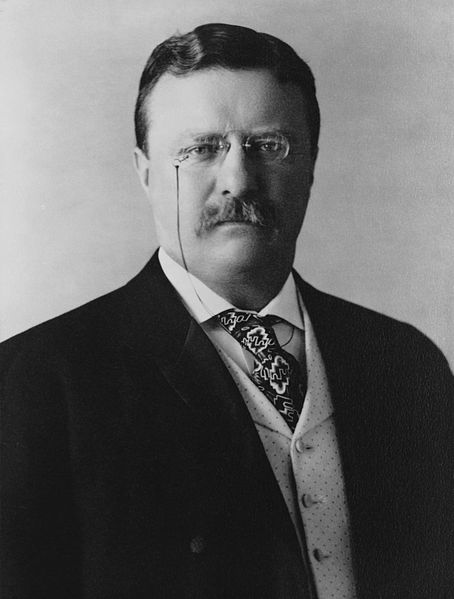Delta Kappa Epsilon (ΔΚΕ), commonly known as DKE or Deke, is one of the oldest fraternities in the United States, with fifty-six active chapters and five active colonies across North America. It was founded at Yale College in 1844 by fifteen sophomores who were discontented with the existing fraternity order on campus. The men established a fellowship where the candidate most favored was "he who combined in the most equal proportions the Gentleman, the Scholar, and the Jolly Good Fellow."
The Cornell chapter house is a National and Ithaca Historic Landmark.
The Yale Club's main entrance on Vanderbilt Avenue, home of The Delta Kappa Epsilon Club of New York
President Theodore Roosevelt
Fraternities and sororities
In North America, fraternities and sororities are social organizations at colleges and universities. They are sometimes collectively referred to as Greek life. Generally, membership in a fraternity or sorority is obtained as an undergraduate student but continues thereafter for life. Some accept graduate students as well. Individual fraternities and sororities vary in organization and purpose, but most share five common elements:Secrecy
Single-sex membership
Selection of new members based on a two-part vetting and probationary process known as rushing and pledging
Ownership and occupancy of a residential property where undergraduate members live
A set of complex identification symbols that may include Greek letters, armorial achievements, ciphers, badges, grips, hand signs, passwords, flowers, and colors
The fraternity system in North America began at the College of William and Mary in Williamsburg, Virginia, where Phi Beta Kappa was founded in 1776.
The Kappa Kappa Gamma house at the University of Illinois at Urbana–Champaign
Wesleyan College in Macon, Georgia, pictured c. 1877, was the birthplace of Alpha Delta Pi and Phi Mu sororities
Alpha Phi Alpha fraternity members assist the Georgia Air National Guard during a George Floyd protest in Atlanta in June 2020







